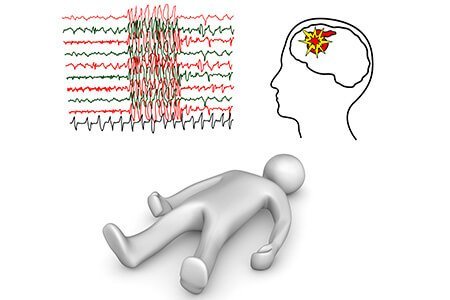Epilepsy and Seizures
Types, causes, symptoms, diagnosis, treatments
What is epilepsy?
Most often noted as “seizures” or “fits”, epilepsy is a common medical condition arising due to an abnormal activity of the brain cells.
Epilepsy usually affects at extremes of age: small children or elderly. Many children get over this condition with age.






 Appointment
Appointment WhatsApp
WhatsApp Call
Call More
More